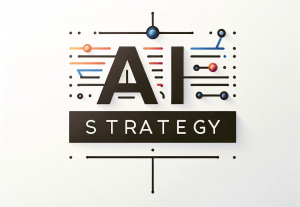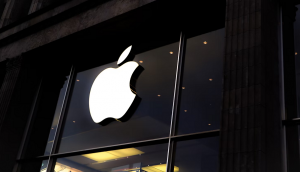Bitcoin Weekly 2014 April 30: Bloomberg adds Bitcoin to their market index, MIT to produce campus-wide ‘bitcoin economy’, the first Mexican bitcoin exchange
![]() A day late, but not a bitcoin short, the Bitcoin community is seeing some recognition this week in the financial sector with Bloomberg adding a Bitcoin market index to their professional services. Two MIT students will be giving $100 worth of bitcoins to pupils on campus to start a small bitcoin economy and study spending trends. Mexico just got its first Bitcoin exchange, and a lot of reasons to make use of the virtual currency to provide easier money transfer services.
A day late, but not a bitcoin short, the Bitcoin community is seeing some recognition this week in the financial sector with Bloomberg adding a Bitcoin market index to their professional services. Two MIT students will be giving $100 worth of bitcoins to pupils on campus to start a small bitcoin economy and study spending trends. Mexico just got its first Bitcoin exchange, and a lot of reasons to make use of the virtual currency to provide easier money transfer services.
Read on to see this week’s Dr. Bitcoin and more.
Bloomberg to list Bitcoin market prices
Bloomberg has started providing market prices for Bitcoin to over 32,000+ subscribers to the Bloomberg Professional service.
In a post on Bloomberg’s official blog the service will pull its market information about Bitcoin from the Coinbase and Kraken exchanges. This is part of a push to start tracking information on virtual currencies, writes Bloomberg, which will be included alongside Bitcoin values. As live Twitter feeds have been integrated into Bloomberg’s professional trading platform, users will also be able to watch data coming in about other currencies.
To access this information, users need only type the code VCCY<GO> on the Bloomberg Professional service.
The fact that Bloomberg only pulls an index from two exchanges when the Bitcoin marketplace contains a multitude of exchanges has brought a sense of wariness to some coverage. For example, The Wall Street Journal’s coverage carefully mentions that it only cites two exchanges. According to the BitcoinAverage bitcoin price index the three biggest exchanges by volume are Bitstamp, BTC-e, and Bitfinex making up 94.5% of the known market. Kraken represents only 0.04% of the total volume and Coinbase does not publish its volume for buying/selling BTC.
Still, there are many reasons to see Bloomberg listing Bitcoin prices as a source of legitimacy for the currency. Bloomberg itself is in competition with other financial services when it comes to trade and investment and being first-to-market when it comes to indexing pricing may lead others to do the same.
Two MIT students plan a half-million dollar Bitcoin economy
MIT, the birthplace of brilliant minds and innovative technologies, will become the first campus with its own working Bitcoin economy. Two students have raised half a million dollars to distribute $100 worth of bitcoins (about 0.22 BTC) to every MIT student.
In the announcement about the Bitcoin Project news is included about working with professors and researchers to follow how students who receive bitcoins choose to use their gains.
The two students involve are Jeremy Rubin, a sophomore studying electrical engineering and computer science at MIT, and Dan Elitzer, founder and President of the MIT Bitcoin Club and a first-year in the MBA program at MIT Sloan.
The reason for announcing the project before dispersing BTC to the student body, explains Elitzer, is to give the students lead time to research virtual currencies. With this in mind, students who will be getting what is essentially a free $100 will be looking for services and products available for BTC. How they end up using it could provide valuable insights into the current capability of workaday students to enter into the economy as it is.
The professors and faculty at MIT see this as an opportunity to use the data of how virtual currencies will shape current and future economies. “Bitcoin and related cryptocurrencies pave the way for personal data to be recognized as a new digital asset class,” says Thomas Hardjono, Executive Director of the MIT Kerberos & Internet Trust Consortium.
With the rise of Bitcoin and other virtual currencies affecting dealings across the world, the concept of digital assets is becoming a relevant industry.
Online games have virtual assets in the form of virtual items, up to and including virtual gold from Blizzard’s MMORPG World of Warcraft, Facebook credits, and microtransaction currencies in free-to-play games.
One barely even need look at the rise of Bitcoin or even the interest in Dogecoin to see that the future is filled with potential digital assets.
The need to study them–both academically, for the sake of anthropology, and economically, for the sake of the industry–could not be more pressing.
Mexico’s first Bitcoin exchange sets the tone for the market
Mexico is not new to Bitcoin, nor are Mexicans new to bitcoins, but it appears that MEXBT.com will have the distinction of being the first Mexico-based Bitcoin exchange.
News site CoinTelegraph reports that MEXBT will be launching soon amidst a need in Mexico for monetary remittance with fewer fees. And, at the same time, Mexico has been extremely quick to embrace Bitcoin as a technology. CoinTelegraph adds that MEXBT will also roll out a ‘cash network’ of 130,000 locations including WalMart and 7-Eleven where customers can buy bitcoins.
Something, correctly noted, that is still something of a dream in the United States where the Internal Revenue Service and other regulatory agencies cannot even agree on if bitcoins are money or property.
Ask Dr. Bitcoin: Replacing Western Union
With the news about MEXBT and discussions of how high fees are in the money remittance market, Bitcoin often becomes a topic-of-note when discussing how much could be saved transferring money (with fewer fees than outfits such as Western Union.) Mark ‘Rizzn’ Hopkins, with Mike Wheately and Mellisa Tolentino, kept this in mind while writing about the current state of Bitcoin in the money remittance market for this week’s Dr. Bitcoin.
The conclusion has been, that Bitcoin could replace networks such as Western Union for money transfer, but that it’s not quite there. Numerous mobile and money transfer networks in countries such as Africa have started to take advantage of the already-present infrastructure Bitcoin has, but they’ve hardly taken a big enough foothold to topple WU.
M-Pesa is a mobile-phone based payment system in Africa that Bitcoin-transfer service Kipochi piggy-backs on for payments. It is because of Africa’s unique economic situation and mobile-payments proliferation that keeps bringing it back into the Bitcoin spotlight since a SiliconAngle story in 2012 and with the rise of Kipochi.
The result, Dr. Bitcoin can provide us a little glimpse where Bitcoin remittance has come since 2012 and where it might be going in places like Africa:
Speaking us at SiliconANGLE earlier today, Braendgaard said that he believes Bitcoin can replace money transfer services like Western Union. However, he said it’s not reached that stage yet, though services such as Kipochi can help it get there.
He compared Bitcoin to the Internet, remembering how it replaced most forms of communication. Bitcon, like the Internet, is an open network and it needs services the same way Internet service providers made the Internet available to more people.
In the past two years, a few more services have appeared that take advantage of mobile payments and Bitcoin including Kipochi, Bitpesa, Mycelium, and even mobile-based Bitcoin wallets—but wide-scale adoption is still waiting in the wings for a killer app to burn a trial.
A message from John Furrier, co-founder of SiliconANGLE:
Your vote of support is important to us and it helps us keep the content FREE.
One click below supports our mission to provide free, deep, and relevant content.
Join our community on YouTube
Join the community that includes more than 15,000 #CubeAlumni experts, including Amazon.com CEO Andy Jassy, Dell Technologies founder and CEO Michael Dell, Intel CEO Pat Gelsinger, and many more luminaries and experts.
THANK YOU









